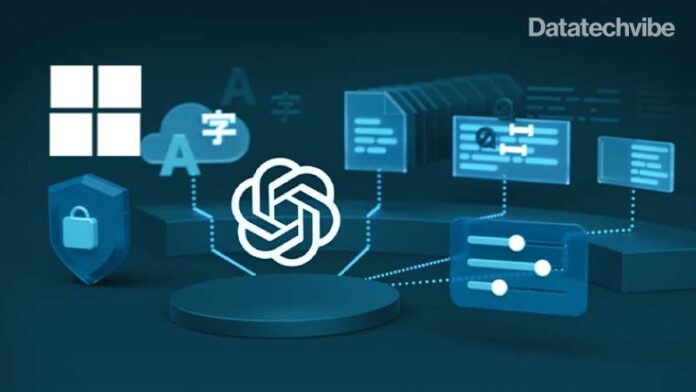ChatGPT is coming to this Azure service soon, as businesses get to use new AI models in their own apps.
Microsoft is rolling out its Azure OpenAI service this week, allowing businesses to integrate tools like DALL-E into their own cloud apps. Microsoft has been testing this Azure service for over a year, and it will soon include access to ChatGPT, the conversational AI that made headlines last year.
The Azure OpenAI service features a number of AI models made by OpenAI, including GPT-3.5, Codex, and DALL-E, so businesses and developers can utilise these systems in their own apps and workloads. Microsoft essentially packages up GPT-3.5 with the scaling you’d expect from Azure and management and data handling additions. Developers could use Azure OpenAI to build apps that leverage AI for support tickets or for content matching to improve search results in online stores. Such models are already being used widely as tools to summarise documents and analyse text.
Microsoft uses its own Azure OpenAI service to power GitHub Copilot, the $10 per month service that helps suggest lines of code to developers inside their code editor. Power BI also uses GPT-3 natural language models to generate formulae and expressions, and the upcoming Microsoft Designer app uses DALL-E 2 to generate art from text prompts.
The launch of Azure OpenAI comes just days after rumours of Microsoft looking to integrate ChatGPT and other OpenAI language AI models even further into its products and services. Microsoft is rumoured to be preparing to challenge Google with ChatGPT integration into Bing search results, and the company is reportedly looking at integrating some language AI technology into its Word, PowerPoint, and Outlook apps.
Speaking at the World Economic Forum on Tuesday, Microsoft CEO Satya Nadella was bullish on OpenAI integration. “Every product of Microsoft will have some of the same AI capabilities to transform the product completely,” said Nadella at a Wall Street Journal panel. Tools like ChatGPT, Nadella argues, are needed to boost productivity. “We need something that truly changes the productivity curve so we can have real economic growth,” said Nadella.
Microsoft purchased an exclusive license to the underlying technology behind GPT-3 in 2020 after investing $1 billion into OpenAI in 2019. It has built a deep relationship with OpenAI ever since, including plans to add an AI text-to-image model to Bing powered by OpenAI’s DALL-E 2. Microsoft is now reportedly eyeing a $10 billion bet on OpenAI that would see the software giant get 75 per cent of profits and a 49 stake in OpenAI.









